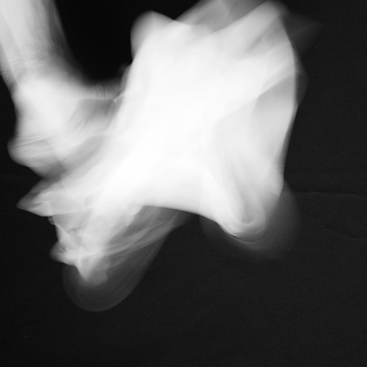 When I tell you that my mother’s father was born in a Siberian prison, I’ll remind you that was because his parents were perhaps exiled as retribution for political acts. Or simply because they were Jews. He, however, was a baby.
When I tell you that my mother’s father was born in a Siberian prison, I’ll remind you that was because his parents were perhaps exiled as retribution for political acts. Or simply because they were Jews. He, however, was a baby.
Some of what I will tell you is true. Were they Jews? Yes. But was that Siberia? In the lone photo I have, my great-grandfather wears a hulking fur. He sits before what seems to be a stockade, teenaged wife at his side. On his lap, a wide-eyed baby in a wooly cap. The baby is delicate and lightweight. The baby may not be my grandfather. Perhaps this is his older brother. This might not be Siberia. Or prison.
I don’t know when I first saw the photo: I’ve always seen the photo, touched the hard shell of the finish like an old fingernail. The actual photo has gone somewhere with someone else. What I have now is a digital copy. The story of the photo is what lasts.
Photography as a hobby or a business wasn’t rare in the first decade of the last century, but having a portrait taken was still a serious endeavor. Let’s presume that the enterprising soul who took this photo used something like the Midland Field Camera, an elegant piece of machinery, all ebony inlay and brass fittings with a black leather accordion bellows to move the lens close or far. Perhaps he used a Seneca Number Five, the body mahogany, the fixtures nickel, the black bellows gossamer-lined. Perhaps, in this far place, he had himself a Kodak, the efficient American camera that advertised functionality over beauty.
Machinery notwithstanding, he would have developed these negatives himself, and returned the photos to—where? An encampment in a Siberian prison? A home in a Jewish settlement in Poland? He artfully arranged three people outdoors in a descending line of height. Did he know these three people, my ancestors? And how did the developed photo end up in their possession? This is a thing I will never know.
When I was twelve and so very far from Siberia, that baby who became a grandfather gave me a Praktiflex camera from the 1940s. The ancient viewfinder was made to flip open on top. The camera’s heavy leather case was as awkward as an oversized winter coat. I had recently begun to photograph things. I took ponderous images of my cat, of the snow-white creeping phlox on our patio, of my bare feet. But that camera was too complicated, its knobs and dials too intricate, the handheld light meter offering information I couldn’t comprehend. Before long, I put it away, choosing instead the Kodak Instamatics that my father’s parents sent me every Chanukah. Point and shoot, send the cartridges away. Get back a yellow envelope with lightweight snapshots of a birthday party, my father’s long fingers holding his Pall Mall cigarette, my mother smiling, tense, at the kitchen sink.
So little work was involved, so little art.
To my grandfather, gone now forty years, I say that I am sorry. I didn’t know when you gave me that heavy and delicate German camera, you were thinking of that 1905 photograph and the story it told; a heavy and delicate tale.
___
Jessica Handler is the author of Invisible Sisters: A Memoir, and Braving the Fire: A Guide to Writing About Grief and Loss. Her nonfiction has appeared on NPR, in Tin House, Drunken Boat, The Bitter Southerner, Brevity, Creative Nonfiction, Newsweek, The Washington Post, and More Magazine. A founding member of the Decatur Writers Studio in Decatur, Georgia, she teaches creative writing at Oglethorpe University in Atlanta, and lectures internationally on writing well about trauma. Her debut novel, The Magnetic Girl, is forthcoming from Hub City Press in 2019.

8 comments
Nina Gaby says:
Jan 17, 2018
How much you fit into these few words. I am tempted to make all sorts of analogies but I will hold back. This is just so beautiful, so honoring.
Abigail Thomas says:
Jan 19, 2018
loved this, Jessica. wow.
Sandell Morse says:
Jan 20, 2018
Thank you. You have touched my heart.
Priscilla Bourgoine says:
Jan 27, 2018
Jessica, this is such a beautiful piece.
Rebecca Gummere says:
Feb 1, 2018
So, so lovely, Jessica. Big love.
Royce King says:
Feb 23, 2018
It is 6:36 AM and already this morning in two different publications I have read how family we knew and did not know still mold and shape us from their stories, belongings, pictures and graves. Some people spend time attempting to escape from their past, but as you have just written Jessica, I am pleased to know my past is part of my future. Thank you.
Sejal Shah says:
Mar 12, 2018
This is beautiful, Jessica! I especially liked “Some of what I tell you is true” and “I don’t know when I first saw the photo: I’ve always seen the photo….” With the mention of Kodak, our former company town here in Rochester, you piece brought back a whole set of images–namely the yellow of those envelopes and sending the cartridges away…I’d forgotten that. Thank you– I enjoyed this.
Emily Arnason Casey says:
Apr 14, 2018
I love this. Thank you. I relate so much to this divide of sentiment between child and grandfather. The hope of things becoming, meaning. The knowing and not knowing what is true of memory and the past.